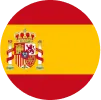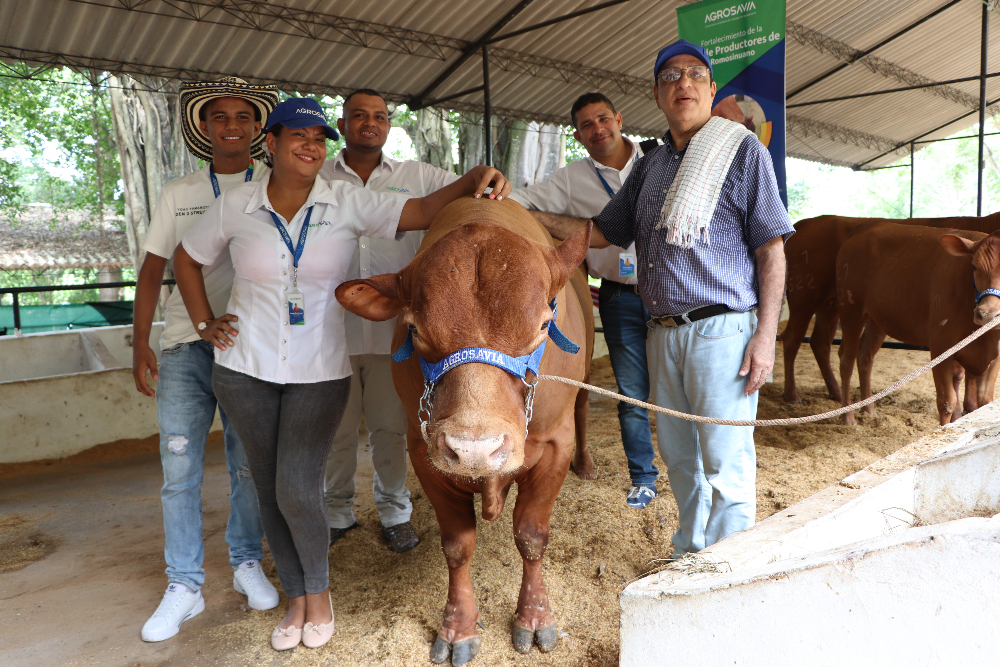- Coffee, cocoa, beekeeping, entomology, and the livestock offer adapted to the humid Caribbean were the central topics of AGROSAVIA's stand.
- Romosinuano and Costeño with Cuernos stole all the public's attention.
- Canephora coffee, an alternative for producers in the non-traditional coffee areas of the country.
- The stereoscope captivated the attention of boys and girls at the fair.
Montería, Córdoba. June 23, 2023. From Montería, the livestock capital of the country, the 61st version of the National Livestock and Agroindustrial Fair of Córdoba was held in the "Miguel Villamil Muñoz" Fair Coliseum. On this occasion, from the Turipaná Research Center, we showed our research and technological offers in coffee, cocoa, beekeeping, entomology, and, of course, in the livestock offer adapted to the humid Caribbean.
AGROSAVIA and its Turipaná Research Center exhibited some individuals of Colombian Creole Breeds, of which it is its custodian. This is how the Romosinuano and Costeño con Cuernos stole all the public's attention. Jorge Armando Mejía Lúquez, Research Support Professional comments, "The animals participating in the Fair were 2 bulls, one Romosinuano and one Costeño con Cuernos, and 6 heifers with Romosinuano bellies. We had the opportunity to show them on the track and highlight the importance of their genetics in the Caribbean region. We also participated in an exhibition in the dual-purpose judging where Judge Carlos López highlighted the benefits of each breed and the importance they have today in a directed cross, seeking efficiency in the tropics."
Likewise, we participated in the Fair's Auction of Stars [Remate de Estrellas], where some females with Romosinuano bellies were auctioned; these are "specimens from the Genetic Breeding Program and the Animal Germplasm Bank, two important breeds found in the tropics due to their adaptation and reproductive ability, important variables for the livestock sector" argued Yesid Abuabara, Research Professional. Another experience was a display of the SATREPS project, which seeks to establish a technological base in the Caribbean meat cluster region to strengthen the value chain of forage-fed bovine meat using a digital platform. Note that the government of Japan finances this project through its International Cooperation Agency, JICA.
An essential part of livestock is the supply of forage crops such as V-114 maize, a dual-purpose variety used for grain and silage production; JJT-118 sorghum, an interesting offer because its cane stands out for its sweetness, generating good quality forage and excellent taste for the animals; forage cassava 2081-34, a particular material for silage production because it provides protein for animal feed. Conservation alternatives were also shown, such as the production of hay, haylage, silage, and multi-nutritional blocks as a source of energy and protein that allow the animals to have enough food to endure critical times due to drought or summer.
Regarding beekeeping, work has been done for around 4 years on capacity building for the development of research topics and exchange of experiences with producers from the departments of Córdoba and Bolívar, in which there are demonstration showcases that have been prioritized within their importance topics for the territories, good beekeeping practices and the generation of by-products such as honey, pollen, propolis, and wax. These types of alternatives were presented to those attending the fair, demonstrating all the options that can be generated from this productive system and who, interactively, were able to observe the components of a hive and the activity of the bees.
However, not everything was livestock. The team of professionals also showed the research activities carried out in the Canephora coffee material evaluation project. Further, what is being done at Turipaná has allowed the evaluation of the crop in its different stages. From the stand, they presented the process from the green bean to the mature bean when it is ready for harvest. Then, how it undergoes a natural drying process and how green coffee is obtained after carrying out husking and threshing processes. Finally, it is subjected to roasting to obtain coffee. José Gregorio Morales Angulo, Research Support Professional. Commented, "What we want to offer is an alternative for producers in non-traditional coffee areas of the country that is profitable and improves their income."
On the other hand, cocoa was also welcomed. Manuel Espinosa, MSc. Associate Researcher expressed that the Corporation has been promoting good cultivation practices; for this, the most recent document generated for the territory was presented: "Cocoa production model for the department of Sucre," which includes all the technical aspects for the development of cocoa farming in the region with the implementation of AGROSAVIA's genetic and technological offer. He also pointed out that "progress results were presented for the ongoing project in the department of Córdoba with resources from the General System of Royalties, which have shown an excellent response to the attributes of the grain in terms of aroma and flavor when it is subjected to a technical processing process and respecting the times during exposure to fermentation in the different prototypes studied for this purpose." AGROSAVIA works to improve grain quality, aroma, and flavor.
Concerning our services, we highlight the entomology laboratory from the network of AGROSAVIA's facilities. From this area, boys and girls could get closer to science through a stereomicroscope, a device in which they could observe details that could not be seen with the naked eye.
- More information here:
- Liseth Cárdenas
- Communications, Identity and Corporate Relations Professional
- Research Center Turipaná
- Communications, Identity and Corporate Relations Advisory Office
- ljcardenas@agrosavia.co
- AGROSAVIA





